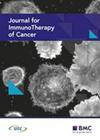CAR T cells secreting NGF-neutralizing scFv enhance efficacy in clear cell renal cell carcinoma by relieving immunosuppression through?…
Abstract
Background: Chimeric antigen receptor (CAR) T cells have demonstrated remarkable breakthroughs in treating hematologic malignancies, yet their efficacy in solid tumors is limited by the immunosuppressive microenvironment. Sympathetic nerves significantly contribute to this immunosuppressive milieu in solid tumors. However, the impact of tumor sympathetic denervation on enhancing CAR T-cell antitumor efficacy remains unclear.
Methods: We screened for sympathetic gene sets in various types of cancers and investigated the association of sympathetic nerves with immunosuppression in renal clear cell carcinoma. Using antibodies to block the nerve growth factor (NGF) pathway, we explored sympathetic nerve distribution in tumor tissues and tumor progression. Additionally, we engineered CAR T cells to secrete NGF single chain fragment variable (scFv) to achieve tumor immunosympathectomy and assessed their antitumor efficacy. Bulk RNA sequencing and single-cell RNA sequencing analyses were conducted to evaluate changes in immune cell phenotypes within the tumor microenvironment.
Results: Blocking the NGF pathway with antibodies effectively reduced sympathetic nerve distribution in tumor tissues and delayed tumor progression. CAR T cells engineered to secrete NGF scFv achieved a similar tumor immunosympathectomy and exhibited enhanced tumor suppression. RNA sequencing analyses revealed that this augmented effect was primarily due to the inhibition of the terminal exhaustion phenotype in tumor-infiltrating CD8 T cells and the prevention of macrophage polarization from M1 to M2. This approach maintained a stronger antitumor immune state at the tumor site. Additionally, splenic T cells also exhibited a more potent immune effector phenotype following the infusion of NGF scFv-secreting CAR T cells.
Conclusions: Our results suggest that immunosympathectomy is a novel approach to weaken tumor microenvironment immunosuppression and synergistically enhance CAR T-cell efficacy against solid tumors.





